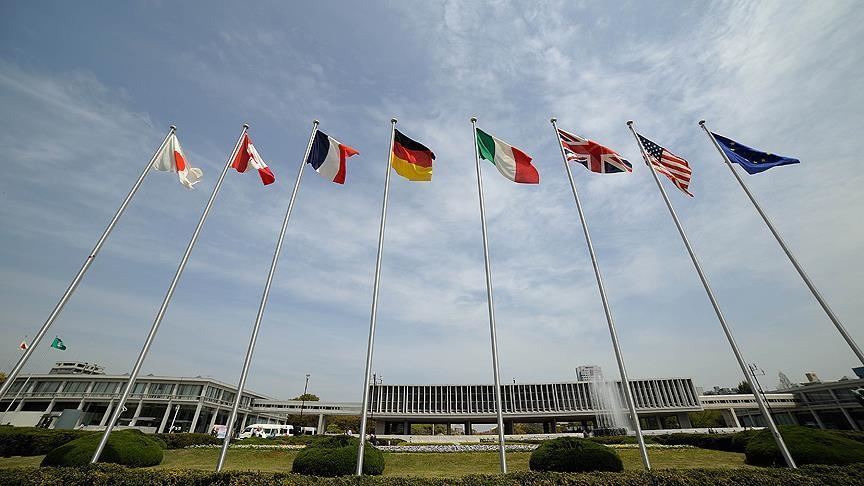Ukraine reconstruction, food security to dominate G7 agenda
Summit to be held under Germany’s leadership with goal of ‘progress towards an equitable world’

MUNICH, Germany
Leaders of the world's seven wealthiest nations will gather in Germany for talks on additional sanctions against Russia and the medium- and long-term reconstruction of Ukraine.
The three-day G7 meeting at Schloss Elmau in the Bavarian Alps will start Sunday.
The agenda is considered more urgent than ever as Russia’s “military operation” in Ukraine continues and it is also noteworthy that the summit will be held before NATO member states negotiate restructuring the alliance in times of war at a summit in Madrid on June 28 - 30.
Having taken the G7 presidency from the UK in January, Germany has set a goal for the program: “progress towards an equitable world.”
Under the theme, issues such as a sustainable planet, economic stability and transformation, healthy lives and sustainable investments will be discussed.
The situation in Ukraine is expected to be at the top of the agenda and according to German diplomatic sources, the German government at the moment is trying to find a way to secure its wheat supply from Ukraine, also possibly through EU member states- “and Türkiye is very involved as well with waterways.”
Regarding whether India can play a role in mitigating the unfolding food crisis by lifting an export ban, a German diplomat said: “Other options can ease the pressure momentarily but there needs to be a long-term solution.”
Germany is planning to establish a "trial corridor" to enable safe passage of Ukrainian grain by rail, German Ambassador to Ukraine Anka Feldhusen told state media on Monday.
Up to 25 million tons of grain are currently stuck in Ukraine, according to Ukrainian President Volodymyr Zelenskyy, who recently said he is seeking a secure corridor for Ukrainian ships to carry it to ease food shortages in regions around the world.
Scholz: “G7 is of particular importance this year”
German Chancellor Olaf Scholz previously said the G7 is of particular importance this year.
“After the start of the terrible war of aggression launched by Russia against Ukraine, it was essential for us to coordinate with each other within the G7 framework.”
He said it was vital to raise the issue of how this war and other changes were affecting countries in the Global South.
On the other hand, China's trade and economic practices, which have been challenging Western economies in recent years, will also be discussed.
Leaders are also expected to announce a new infrastructure initiative aimed at low- and middle-income countries against the Belt and Road Project, which is defined as China's "modern silk road" and whose budget is expected to reach $10 trillion.
Who’s coming?
US President Joe Biden, German Chancellor Olaf Scholz, French President Emmanuel Macron, British Prime Minister Boris Johnson, Japanese Prime Minister Fumio Kishida, Italian Prime Minister Mario Draghi and Canadian Prime Minister Justin Trudeau will attend the summit.
In addition to the seven states, Indonesia, India, South Africa, Senegal and Argentina are also invited.
Indian Prime Minister Narendra Modi is expected to speak at two sessions that include the environment, energy, climate, food security, health, gender equality and democracy.
Zelenskyy, the heads of state and government of partner countries and chairpersons of the international organizations will also be involved.








